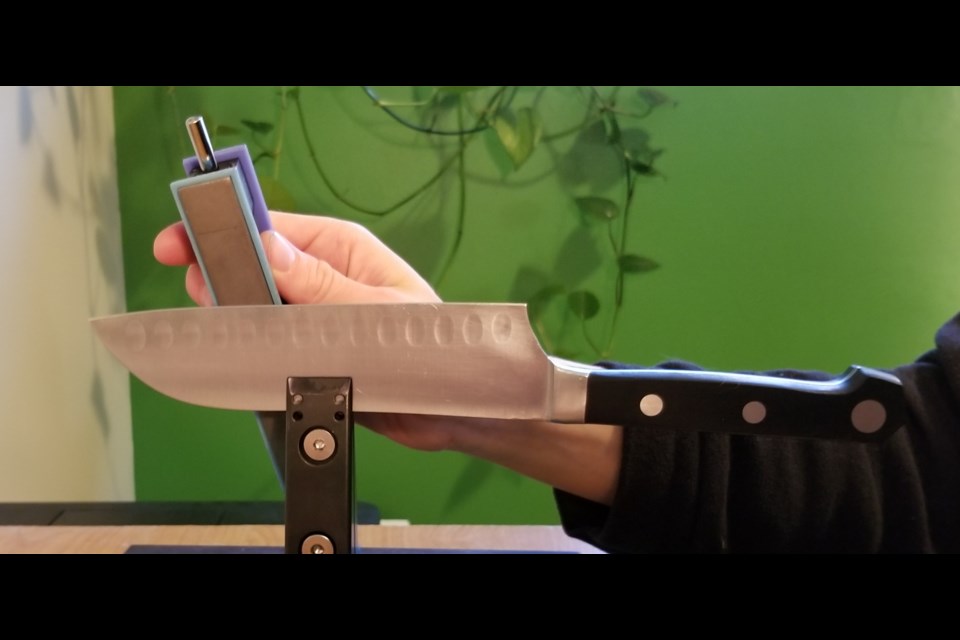Gwendolyn Buttemer, an oboe player with the Thunder Bay Symphony Orchestra since 2014, says that it was a shock when concerts got cancelled at the start of the pandemic in 2020.
Like school teachers, orchestra musicians often pace themselves through the concert season, which typically runs from fall to spring. Buttemer was having a busy and stressful but rewarding 2019-2020 season, appearing as a soloist with the TBSO playing Vivaldi’s Oboe Concerto in d minor.
“I had a plan of how to get through [the season,] and everything got cancelled and it was upsetting,” she recalls. “It was just scary, not knowing what was going to happen.”
However, it wasn’t long before she found a way to capitalize on her skills as an oboe player.
She spent the first weeks of lockdown trying out the new knife sharpening tools she had purchased. Professional oboe players make their own reeds, which are the mouthpieces of the instrument. Making a reed is a very complicated process, where the oboist takes two pieces of cane and scrapes them by hand using a very sharp special knife. Since they are made of natural materials, reeds do not last very long. Oboe players need to make reeds regularly, which also means they need to take care of the tools they use, such as knives.
“It’s very important to know the principles of knife sharpening, to be an oboe player,” Buttemer explains. “I learned in school; we had knife sharpening masterclasses.”
With plenty of time on her hands, Buttemer started sharpening all the knives in her kitchen, using her new tools. “That worked really well with my setup and it just made cooking so much more enjoyable. I thought, ‘Everybody is cooking at home a lot more. Probably everyone needs a sharper knife. It makes cooking so much more fun,” she says.
Although the knives she uses to make reeds are different from kitchen knives, the sharpening skills are very transferrable. “We were taught the principles of knife sharpening. What was happening to the blade on a microscopic level, and how that differed between different methods; water stones, oil stones, and diamond stones,” she says. “It’s something you learn as an oboe player and it’s definitely transferrable to regular kitchen knives, and hunting knives, and fillet knives.”
She named her new business B Sharp Knife Sharpening, set up a Facebook page and started telling people about it. To her delight, there was a lot of interest, first among her friends and colleagues, but the word spread and she began receiving requests from people she did not know.
She charges a modest sum for the sharpening; $7 for a small paring knife, $10 for a regular knife, up to $15 for large chef’s knives. The TBSO is now back to performing, so Buttemer doesn’t have as much free time on her hands, but she says turnaround time is usually 24 to 48 hours.
Buttemer says she finds the process quite enjoyable. “It’s kind of strange but I do enjoy it,” she says. “To try to make a knife very sharp; it’s very pleasing.”

.png;w=120;h=112;mode=crop)

